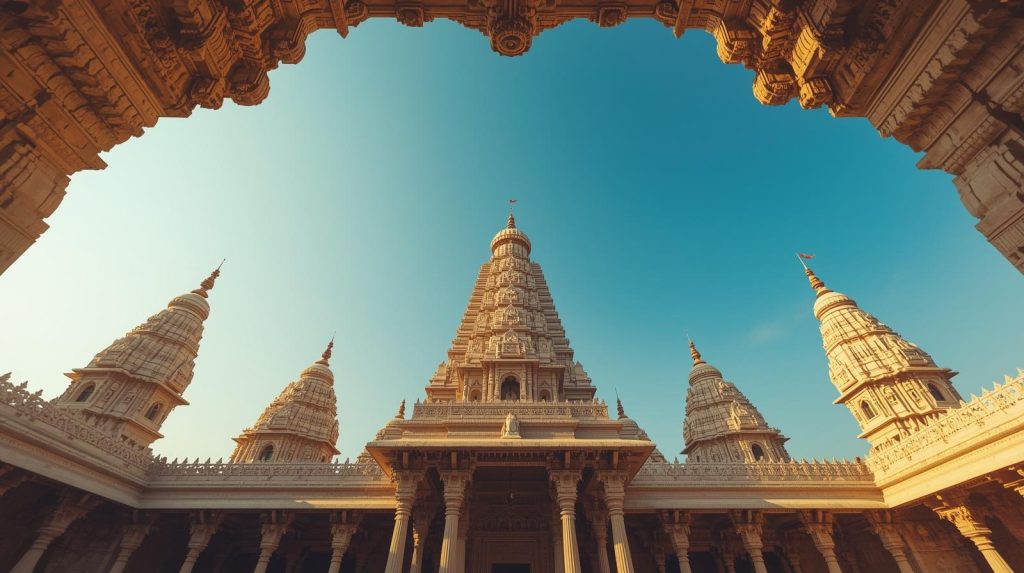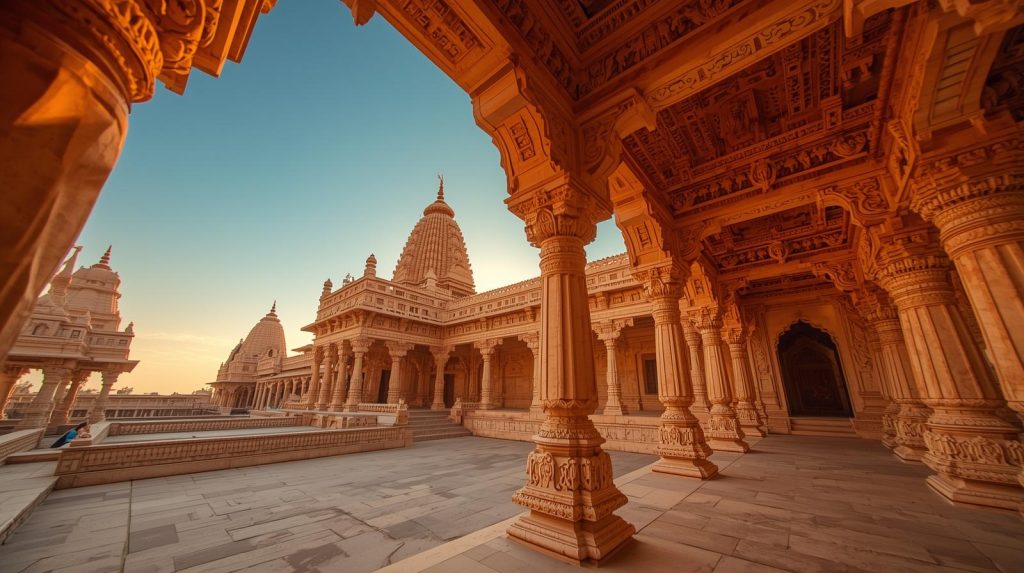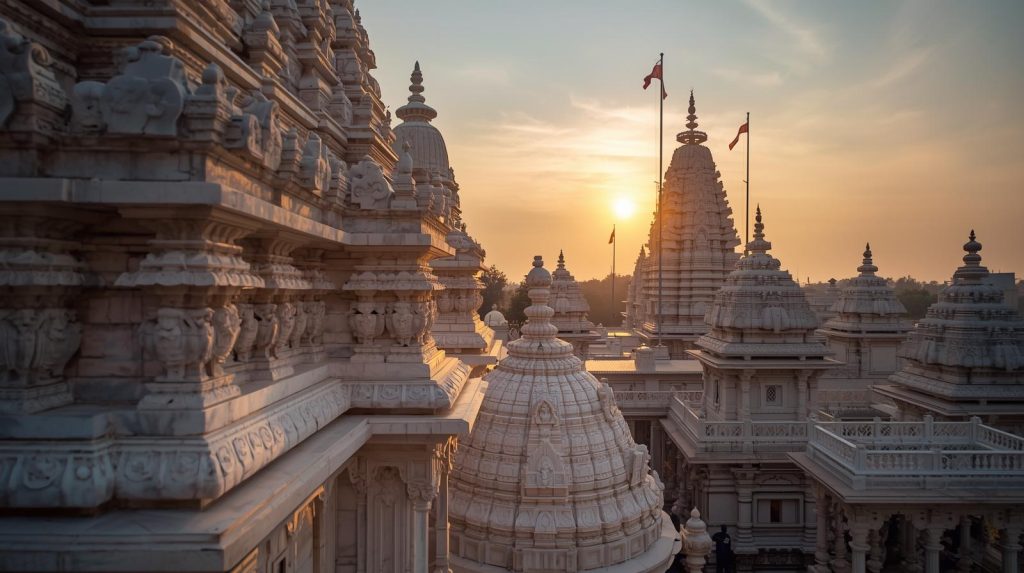Jain Temple Architecture: A Blend of Devotion and Art
Jain temples (Derasars) are known for their unique style that combines spiritual symbolism with architectural brilliance. The temples dedicated to Suparshvanath Swami follow this tradition, featuring marble carvings, symmetrical layouts, and serene sanctums that radiate peace and divinity.

Famous Temples of Suparshvanath Swami
🏛 Palitana Temples, Gujarat
Nestled on the sacred Shatrunjaya Hills, the Palitana complex houses hundreds of Jain temples, including stunning shrines dedicated to Suparshvanath Swami. These temples, adorned with white marble and intricate carvings, stand as a testimony to centuries of devotion and craftsmanship.
🏛 Madhuban (Sammed Shikharji), Jharkhand
At the foothills of Sammed Shikharji—where Suparshvanath attained Nirvana—lies a beautiful temple built in his honor. Pilgrims are captivated by its serene atmosphere, richly decorated interiors, and symbolic architecture representing liberation.
🏛 Varanasi Temples, Uttar Pradesh
As the birthplace of Suparshvanath Swami, Varanasi holds temples that preserve his legacy. These temples, with traditional stone carvings and peaceful courtyards, serve as both sacred spaces and cultural landmarks.

Key Architectural Features
- Intricate Carvings: Depicting floral patterns, divine symbols, and stories from Jain scriptures.
- Symmetry & Precision: Reflecting balance and harmony, central to Jain philosophy.
- Marble & Stonework: Durable materials symbolizing purity and strength.
- Domes & Shikharas: Towering structures pointing upward, signifying the soul’s journey toward liberation.
- Idols of Suparshvanath Swami: Often shown in Padmasana (lotus posture), radiating peace and detachment.
Spiritual Experience of Temple Visits
Visiting these temples is not just about admiring architecture—it’s about experiencing tranquility. The quiet sanctums, echoing chants, and soft fragrance of incense create an atmosphere where the soul feels connected to higher truth.
Conclusion
The architectural beauty of Suparshvanath Jain temples is a living example of how devotion can be expressed through art. These sacred spaces combine craftsmanship with spiritual symbolism, inspiring visitors to seek purity, peace, and liberation.

